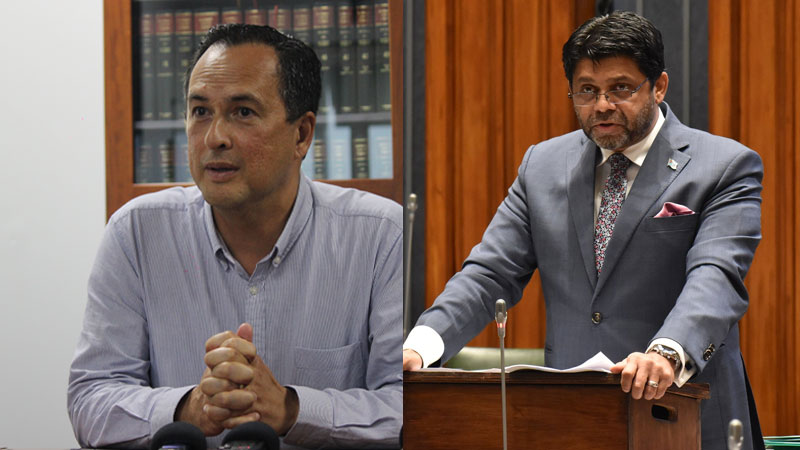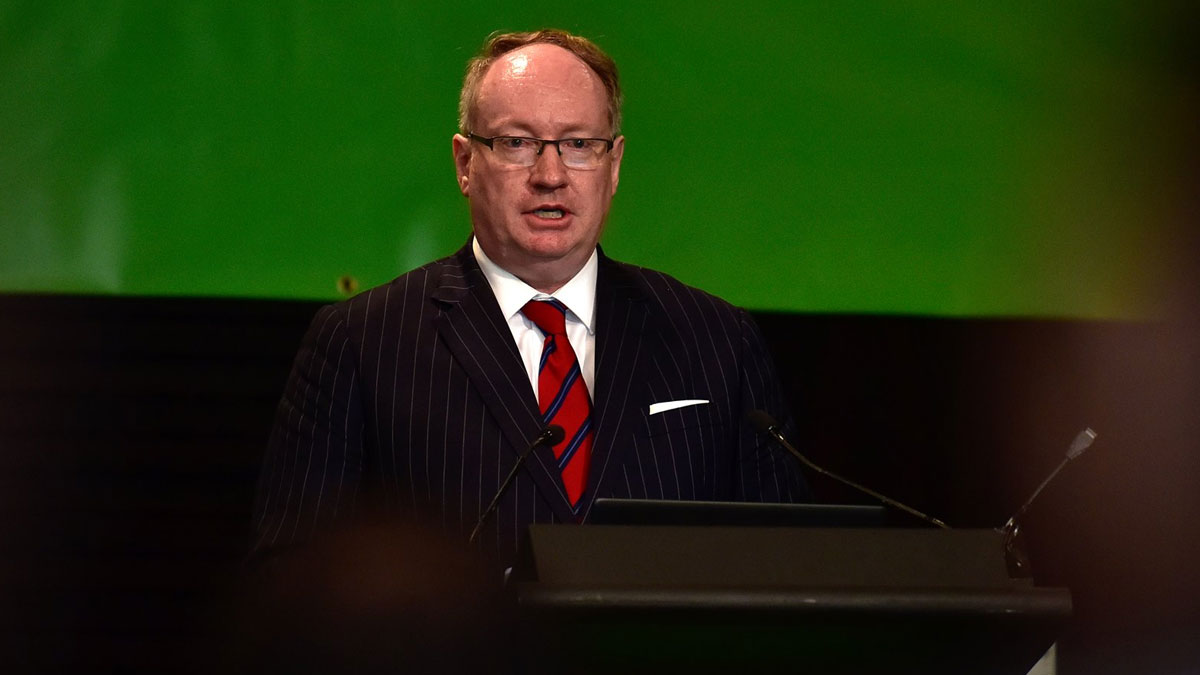
Fiji Law Society President, Wylie Clarke says they have nothing against the Speaker of Parliament and are strongly asking for the bills to go through public consultations after Attorney General, Aiyaz Sayed-Khaiyum said he is appalled at the open letter from the Fiji Law Society where they are trying to bring disrepute to the Office of the Speaker.
Clarke says the point they are making is that one hour’s debate is not enough time for matters that are so important.
He says they are asking for the careful scrutinisation of the bills for the administration of justice.
Clarke says they respect the Attorney General’s views but the Law Society has strong views that the bills should go through public consultations.
He says they do not want the bills to be rushed through parliament.
Clarke stresses that they are in no way working with the opposition, and whatever the opposition has to say are matters for them.
While responding to the Law Society’s open letter calling on parliament to defer debate on two bills in the current parliament session, Sayed-Khaiyum says the Law Society has obviously got the law wrong and it kind of bothers him as a few lawyers got together and wrote the letter.
In the letter, the Society had said that with respect, to restrict matters of such great public importance to one hour’s Parliamentary debate (as suggested by the Speaker of the House) would be a serious failure of leadership.
Sayed-Khaiyum says the Speaker of Parliament does not decide on the one hour debate time on a bill. He says it is the motion that is put on the floor and that is based on the parliamentary standing orders.
The Minister says the Law Society is insinuating that the Speaker has done something wrong.
Sayed-Khaiyum raises the question whether the Law Society is a mouthpiece of the opposition.
He says the Society is wrong as Australia and New Zealand have a the jury system and once you have a jury, the decision or the verdict of the jury must be followed by the courts.
Sayed-Khaiyum says in Fiji, the assessors’ opinion need not be followed by the judge as it is optional.
He says the whole point is about getting consistency in law.
The Minister says Fiji and Vanuatu are the only two Pacific island countries that have the assessor system in High Court criminal trials.
He says there is only a handful of assessors in Fiji – about 30 to 40 assessors that are doing the circuit.
Sayed-Khaiyum says the Law Society has the audacity to say that corruption is not so complex and not so widespread. He says they should talk to the international agencies that deal with Fiji on the ratification of the UN Convention Against Corruption.
He further says that corruption corrodes public confidence and undermines the economy and there needs to be an emphasis on it by having an Anti Corruption Division in the court system.

The Fiji Law Society has written to the Attorney General, Aiyaz Sayed-Khaiyum and all parliamentarians to express their deep concern at the Government’s stated intention to use the expedited parliamentary procedure to debate two bills dealing with an Anti-Corruption Division in the courts and the removal of the assessor system in High Court trials.
The Law Society has called on Sayed-Khaiyum and other parliamentarians in an open letter to defer debate on these two bills this week and instead to ensure that the proposed laws are dealt with in accordance with Chapter 7 of the Standing Orders.
It says this will allow a proper public consultation process to take place that ensures thorough consideration of each of the bills.
The Law Society says the proposed changes are fundamental to human rights.
It says the proposal to create a “specialised” division of the High Court to consider corruption cases needs careful review.
The lawyers say the notion that only specialist judges are competent to preside over corruption cases is open to challenge.
The Law Society says corruption is a criminal offence, and Judges and Magistrates are by definition learned in the law, including criminal law.
However, it says a diverse bench, offering different perspectives and viewpoints, is an important strength in criminal justice.
The Law Society says certainly there are other more serious and pressing priorities within the justice system that warrant attention: a sexual offences and child protection division is a more pressing priority than anti-corruption.
It also says the bill dealing with the Abolition of Assessors represents a profound change in and the dismantling of a key part of the administration of criminal justice in Fiji.
The Law Society says assessors have played a critical part in High Court criminal trials for over 120 years and they are fundamental protection of an accused person’s right to a fair trial.
It says the bedrock of our criminal justice system is that an accused person’s guilt or innocence is determined (or opined upon in Fiji’s case) by his or her peers, by members of the community.
The Law Society says this is a tradition we share with nearly all other common law countries (including Australia, New Zealand and the United Kingdom, who use the jury system in the same manner).
The lawyers say assessor participation sustains public confidence in our judicial system because it provides transparency.
The Society says removing public participation from criminal justice will reduce transparency and erode public confidence, and leaving the question of guilt or innocence in serious cases to a single judge, without an accused having a choice in the matter, is neither fair nor just.
They say they also strongly oppose dealing with both bills under Order 51 of the Parliamentary Standing Orders as there is nothing urgent raised in either of them.
The Law Society says these bills should not be passed in this session of Parliament.
We have sought a response from Aiyaz Sayed-Khaiyum. He is yet to respond.
Stay tuned for the latest news on our radio stations


